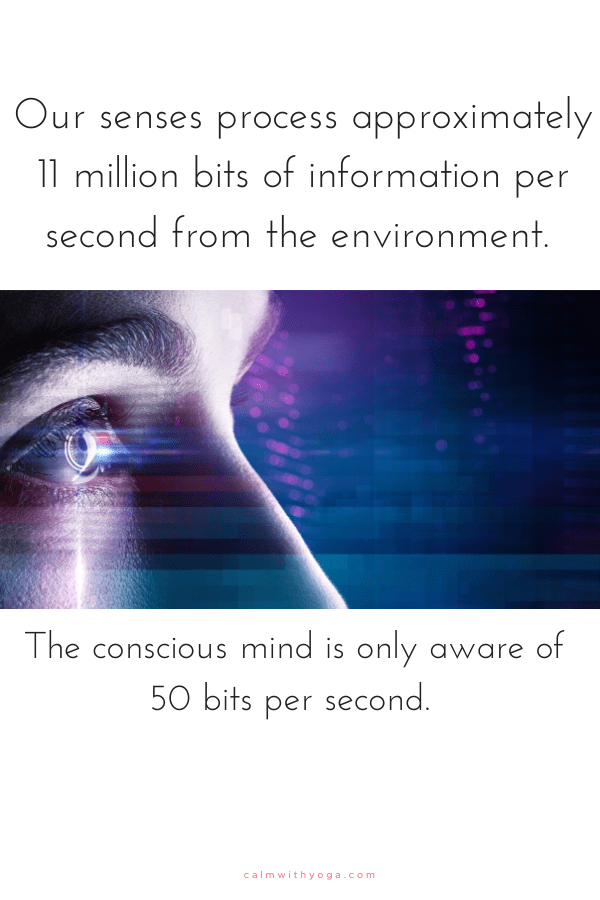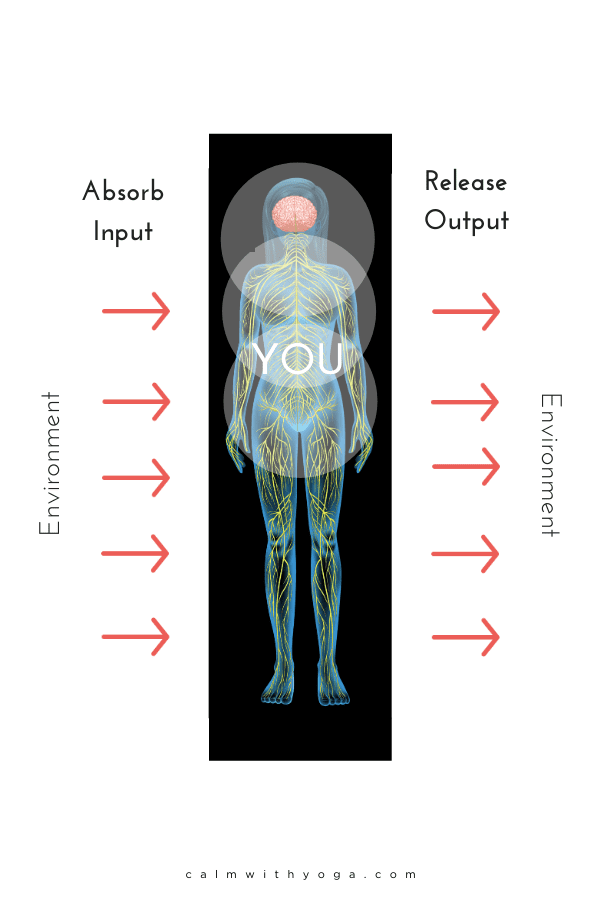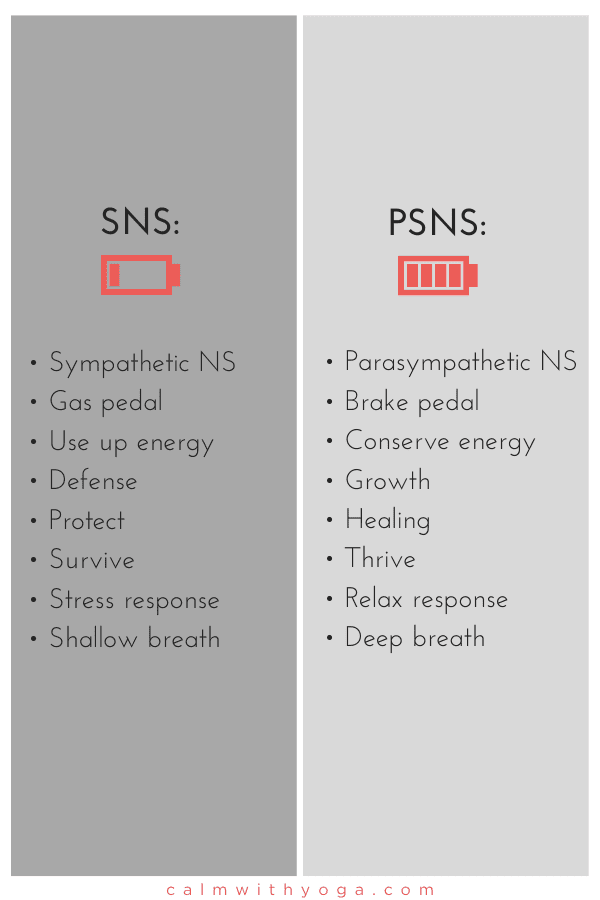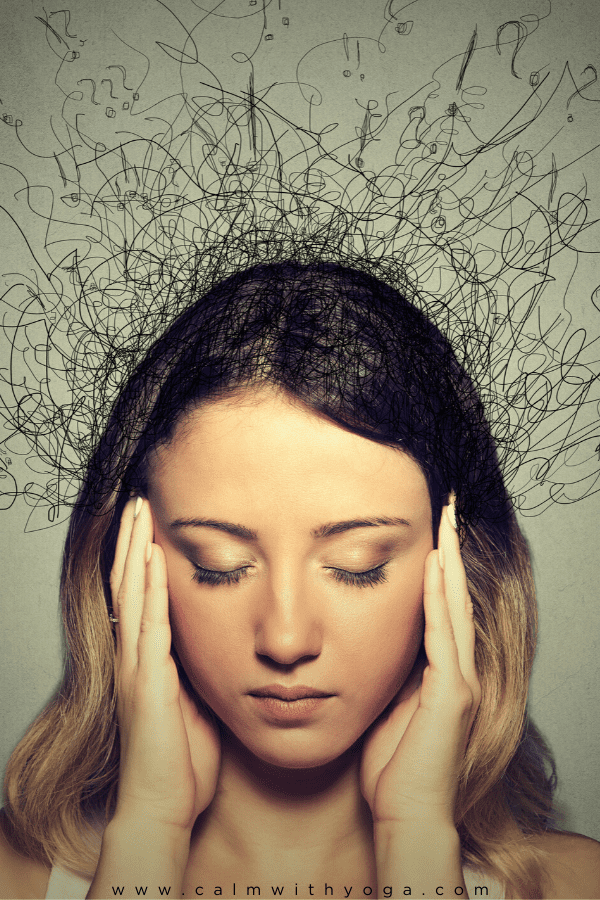– Thich Nhat Hanh, Buddhist monk and Author Without it, you’d die in minutes. Because of it, your cells can breathe, your heart can pump, and your lungs come to life. Your body is your Temple. Your breath is your Offering. It’s no coincidence that Eastern concepts like “Qi” and “Prana” translate to “Breath of Life.” Conscious, mindful breathing is the first step in generating energy and circulating Vital Energy. When vital energy flows freely through our body’s channels we experience mental, emotional, and physical health and wellness. We feel grounded, strong, and stable. One of the ways vital energy flows through your body is through your nervous system. Your nervous system is also closely tied to your mental/emotional state and moods. In order to feel good, you’ll need to re-balance your nervous system so it works with you, not against you…
How Your Breath Is Connected To Your Nervous System:
Conscious, intentional, and slow breathing is also one of the fastest ways to regain control of your nervous system. – Deepak Chopra, doctor & author Your nervous system is your partner in co-creating your experiences and your reality. Your nervous system helps you make sense of the world in and around you. And it does all of this with lightning-quick speed.
We are always in constant communion with our nervous system; there’s no off button. The result of this communion is what we commonly refer to as ‘mind’ and ‘thought.’ It turns out that our nervous system is the crowning achievement of our body’s intelligence. Everything we perceive through our senses – everything we can see, hear, taste, smell, intuit, and touch is processed through the nervous system. Like a good gatekeeper, it helps us maneuver through life by keeping track of every single little sensory detail of our experience so we don’t consciously have to.
Your breath and emotions are connected to your Autonomic Nervous System (ANS). Your Autonomic Nervous System (ANS) is the branch of your nervous system that: Think of the SNS as the gas pedal and PSNS as the brake pedal. The SNS oversees your stress response. Your PSNS oversees your relaxation response.
SNS: The Sympathetic Nervous System
“Fight/ flight/ freeze” response Stress response Energy mobilizing Gas pedal Associated with stress hormones (ie: cortisol, adrenaline) Degenerative Uses up / depletes Vital Force Reserves
PSNS: The Parasympathetic Nervous System
“Rest and digest” / “Tend and befriend” response Relaxation response Energy conserving Brake pedal Associated with regenerative building hormones Regenerative Fills up Vital Force Reserves
Your mental and emotional state is reflected in your breath via your breathing rate. Short, fast, shallow breaths signify an active SNS (stress). The next time you observe yourself feeling angry, anxious, nervous, stressed, or afraid try to stop and notice your breath. You’ll find this is true. Slow, long, deep breaths activate your PSNS (coherence + relaxation). It’s via your breath alone that you can swiftly and effectively shift your mental-emotional state without taking outward action (or swallowing a pill.) When we feel stuck, angry, anxious, nervous, stressed, or afraid, we can feel like we have no control over what’s happening in and around us. That’s exactly the moment we can immediately turn to our breath as the first thing that we can control.
Deep, diaphragmatic breaths activate your PSNS and help you enter into coherence. This is how you can become your own source of calm in the middle of any storm. By intentionally controlling your breath instead of it controlling you.
Scientific Benefits of Conscious Deep Breathing:
- PSNS dominance and the Relaxation Response is facilitated by slow, deep breathing, which inhibits the brain’s fear and anxiety pathways (the amygdala, our brain’s emotional center.) (1) In fact, the thought process of expectation produces the same stress chemicals as a stressful event, and we do that all the time. So when we begin to close our eyes and take a couple of slow deep breaths and become aware of it, we’re literally switching nervous systems… As we begin to breathe and we begin to turn on the other nervous system called the parasympathetic nervous system, that nervous system is the nervous system of relaxation… Energy is being rejuvenated and restored and no energy is leaking out to address emergency situations, to address threats. So there is a conservation of energy that takes place and the reserve begins to build up. Most people who live on the ‘fight or flight’ nervous system, most people who live on the stress hormones, they’re mobilizing all of this energy constantly, but by mobilizing all this energy there is no energy for repair or restoration because they’re on the wrong nervous system.” – Dr. Joe Dispenza, Neuroscientist, Chiropractor, Researcher, & Author of “Evolve Your Brain” If I had to limit my advice on healthier living to just one tip, it would be simply to learn how to breathe correctly. There is no single more powerful – or more simple – daily practice to further your health and well-being than breathwork. – Dr. Andrew Weil, physician and author
- Deep, slow breathing helps activate your 3 Brains (yes, you have THREE brains!) and positively impacts your ANS by balancing the brain, heart, and digestive organs connected to the ANS. (2)
- Deep slow breathing leads to a drop in blood pressure and heart rate regulation even without any meditative practice. (2)
- Deep diaphragmatic breathing has been shown to increase theta brain waves. (3) Theta brainwaves are associated with a state of deep relaxation and dreaming sleep, the Flow State, as well as increased creativity, super-learning, integrative experiences, and increased memory. (4)
- When controlled breathing is paired with meditative practices, there can be an actual increase in brain growth in areas linked to attention and processing of sensory input. (5)
Rebalance Your Nervous System With This Breathing Practice:
Got 5 minutes? Here’s a short guided breathwork session for you: https://soundcloud.com/calmwithyoga/5-minute-breath-meditation REFERENCES : (1) https://www.researchgate.net/profile/Ravinder_Jerath2/publication/274965480_Self-Regulation_of_Breathing_as_a_Primary_Treatment_for_Anxiety/links/55355f550cf20ea35f10d73c.pdf (2) https://www.researchgate.net/publication/239324032_Augmentation_of_Mind-body_Therapy_and_Role_of_Deep_Slow_Breathing (3) https://www.ncbi.nlm.nih.gov/pubmed/16624497 (4) http://www.centerpointe.com/articles/articles-research (5) https://www.forbes.com/sites/daviddisalvo/2013/05/14/breathing-and-your-brain-five-reasons-to-grab-the-controls/#54c76f812d95



